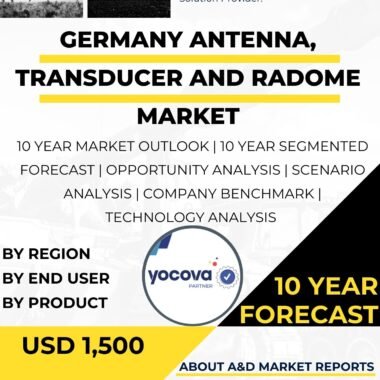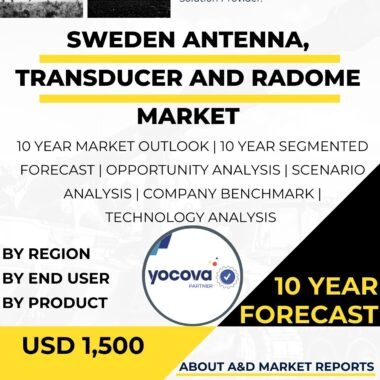Description
Malaysia Antenna, Transducer and Radome Market has gained increasing prominence as the country focuses on strengthening advanced communication, sensing, and radar capabilities across defense and high-technology sectors. These components form the backbone of modern communication and detection systems, supporting reliable data transmission, surveillance, and situational awareness.
Malaysia’s push toward digital transformation, defense modernization, and technology-driven industries has accelerated demand for high-performance antennas, transducers, and radomes that can operate effectively in complex and demanding environments.
Malaysia Antenna, Transducer and Radome Market Communication Drivers
Growing requirements for enhanced connectivity are a major driver of the Malaysia Antenna, Transducer and Radome Market. As Malaysia expands its digital infrastructure and adopts Industry 4.0 practices, the need for reliable, high-bandwidth communication systems has become increasingly critical.
The deployment of advanced wireless networks, expanding data traffic, and rising dependence on connected systems have intensified demand for efficient antenna and transducer solutions capable of supporting modern communication standards.
Malaysia Antenna, Transducer and Radome Market Defense Applications
Within the defense sector, antennas, transducers, and radomes are essential components of military communication, radar, electronic warfare, and surveillance systems. Advanced antenna technologies enable secure and uninterrupted communication between military platforms, improving command, control, and situational awareness.
Radomes and transducers play a crucial role in protecting radar systems while ensuring consistent signal performance in harsh operational conditions. Their use enhances detection, tracking, and threat identification capabilities across air, land, and maritime domains.
Malaysia Antenna, Transducer and Radome Market Radar and Sensing Role
Radar systems equipped with high-performance radomes and transducers are central to Malaysia’s surveillance and monitoring capabilities. Advanced materials and precision manufacturing techniques allow radomes to protect sensitive radar equipment without compromising signal integrity.
These systems support a wide range of missions, from airspace monitoring to maritime surveillance, and are particularly valuable in adverse weather conditions common to the region.
Telecommunications and Digital Infrastructure Demand
Beyond defense, the telecommunications sector represents a major growth area for antenna and transducer technologies in Malaysia. The rollout of advanced mobile networks and increasing adoption of IoT devices require antennas that offer improved coverage, bandwidth, and reliability.
Smart city initiatives and expanding digital infrastructure further reinforce the need for robust communication components capable of supporting continuous data exchange across interconnected systems.
Aerospace and Automotive Industry Integration
Malaysia’s growing aerospace and automotive sectors also contribute to demand for antennas, transducers, and radomes. In aerospace applications, these components support communication, navigation, and sensing systems for aircraft and unmanned aerial vehicles.
In the automotive sector, antennas and transducers enable GPS navigation, vehicle connectivity, and emerging autonomous driving technologies, aligning with the global shift toward connected and intelligent transportation systems.
Indigenous Development, Challenges, and Market Outlook
The Malaysia Antenna, Transducer and Radome Market presents opportunities for strengthening indigenous technological capabilities through local research, development, and manufacturing. Collaboration between government agencies, academic institutions, local firms, and international technology providers supports skill development and technology transfer.
However, challenges remain in advancing component miniaturization, improving performance, and meeting stringent quality and reliability standards. Continuous investment in R&D, workforce development, and regulatory compliance will be essential to ensure long-term growth. Addressing these factors will position Malaysia to enhance its defense readiness, support high-tech industries, and strengthen its role within regional and global technology markets.




